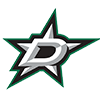Statistics are the core of playing daily fantasy sports, and those not utilizing this data to the fullest extent possible are likely leaving money on the table. Goals and assists are obvious and at the forefront of one's decision-making in DFS soccer, but it's the peripheral stats that add context to situations that wouldn't easily be seen by just looking at the scoresheet of a match.
The newly released soccer stats package here at RotoWire bridges this gap better than no other. Player game logs on DraftKings or FanDuel are definitely useful, but can't be sorted, compared or put into context with the match as a whole. While the resources at WhoScored and FourFourTwo can get quite in-depth, they aren't geared towards a DFS-playing audience and lack the ability to drill down to what really matters.
Raw data, in and of itself, is only helpful in a limited capacity when using it to predict future outcomes. A striker scored a hat-trick last game; a fullback has put in 14 crosses over the past four games; a midfielder has created seven chances over the past three games. What can you even really do with this information? Statistics mean nothing until they're put into context. Away versus home; opponent strength; minutes played; formation used. There are a multitude of variables that need to be taken into account when weighing the performance of a player.
Sometimes the makeup of a team's lineup can drastically affect the output of certain players. This is especially
Statistics are the core of playing daily fantasy sports, and those not utilizing this data to the fullest extent possible are likely leaving money on the table. Goals and assists are obvious and at the forefront of one's decision-making in DFS soccer, but it's the peripheral stats that add context to situations that wouldn't easily be seen by just looking at the scoresheet of a match.
The newly released soccer stats package here at RotoWire bridges this gap better than no other. Player game logs on DraftKings or FanDuel are definitely useful, but can't be sorted, compared or put into context with the match as a whole. While the resources at WhoScored and FourFourTwo can get quite in-depth, they aren't geared towards a DFS-playing audience and lack the ability to drill down to what really matters.
Raw data, in and of itself, is only helpful in a limited capacity when using it to predict future outcomes. A striker scored a hat-trick last game; a fullback has put in 14 crosses over the past four games; a midfielder has created seven chances over the past three games. What can you even really do with this information? Statistics mean nothing until they're put into context. Away versus home; opponent strength; minutes played; formation used. There are a multitude of variables that need to be taken into account when weighing the performance of a player.
Sometimes the makeup of a team's lineup can drastically affect the output of certain players. This is especially true when determining set-piece responsibilities in an upcoming match. Being able to view player statistics when X+Y are in the starting lineup versus X and Y individually can easily be the difference between going with heavy exposure for a given player or fading them completely. Looking at these player trends over the course of a full season, or just the past few games, or on a per 90-minute average can give your research much more needed context.
If you're analyzing lineups of the "sharks" in your contests and wondering "why were so many on this player?" when he wasn't even on your radar for that slate, maybe having a better view of the underlying statistics will shed some light on these picks. Definitely try out the new RotoWire soccer stats package and it just may help you find these smart player selections on a consistent basis. Onto this week's question!
What do you think is the optimal contest spread with a weekly outlay of around $25 per slate? - Gary Cook, @AllezLeChef
To call any specific contest selection strategy "optimal," it assumes one can apply it without regard to their individual playing style or risk tolerance. Just as no bankroll management technique can turn a losing DFS player into a winning one, the same applies to determining which contests to enter on a given slate. It all depends on your strengths and weaknesses, as well as how you handle the innate variance of daily fantasy sports.
If you're a DFS player who consistently builds lineups that hits the cash line in contests, but rarely tops them - definitely play towards that strength by putting the bulk of your volume into 50/50s, double-ups and head-to-head contests. To get even more granular, and to potentially add a few percentage points to your ROI, you can even attack specific contests that feature opponents who have a much more inconsistent "boom or bust" style of play. Essentially, your aim is to profit not from the brilliance of your own decisions, but from the mistakes made by others.
This conservative approach, with proper bankroll management, will likely show a low double-digit return and is the safest way to build up your funds. It's also the slowest. To mitigate this downside, consider entering one or two single entry or three-max entry GPPs (usually with flatter payout structures) in the case your "conservative" lineup actually scores big. It's always a financial calamity in DFS to have your lineup top a cash contest and not get paid for the extra points scored. Most times, however, the GPP entries will not provide a return on a given slate, so don't allocate more than about 20 percent of your volume in them if you're playing a very conservative approach to lineup construction.
If you're a DFS player who excels in making low-owned contrarian picks and builds lineups which either do very well or very poorly - play towards that strength by putting the bulk of your volume in triple-ups, 5x/10x boosters and GPPs. Be more inclined to enter contests with more top-heavy payout structures, as the aim of your play is not to simply just hit the cash line, but to reach the top places, and to get paid handsomely for it.
This riskier approach can definitely see your bankroll balloon in one fell swoop, but it can also see it drained just as quickly. While you can easily show a high double-digit return over the long run, it is not a safe and reliable way to build up your funds - and if you pursue this approach, it is absolutely imperative to practice very sound bankroll management. It's quite possible to go through a stretch of 10 consecutive slates losing all entries, so mitigate this risk by only playing a small percentage of your bankroll per slate and having enough money in reserve to survive the downswings. Also consider hedging your lineup by entering it in a single-entry big field double-up. While you may still end up -ROI on a given slate, doing this should shave down some of the instances when your "boom or bust" lineup construction performs above average, yet still places underneath the cash line in GPPs.
These concepts apply no matter the size of your bankroll, whether it is $25 or $2,500; just scale it up or down depending on your financial situation and tolerance for risk. In the former, you should have no issue in DFS soccer finding low-limit cash contests and GPPs on DraftKings or FanDuel to properly spread your volume. As you move up in stakes, however, the level of competition gets stiffer, so it becomes much more difficult to find edges in contests for that amount of volume in a given slate.
If you would like to submit a question for this weekly column, feel free to either post it in the comment section below, tweet it to me @blenderhd, or email me at jordan@fantasyflush.com.





































